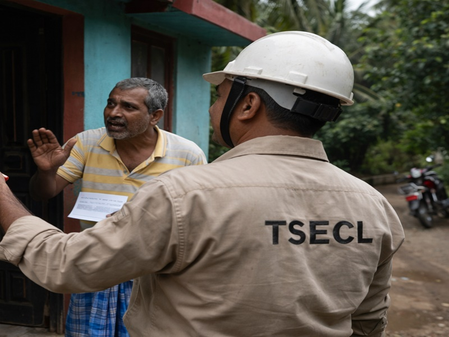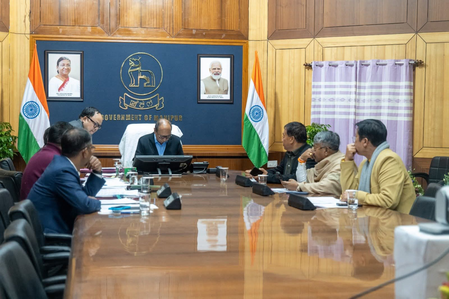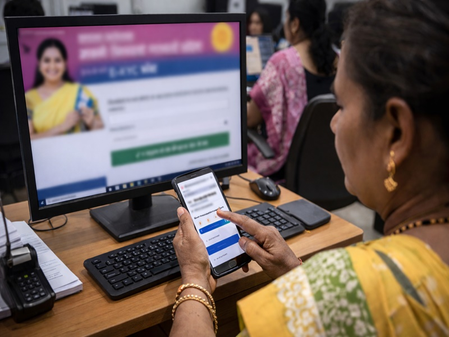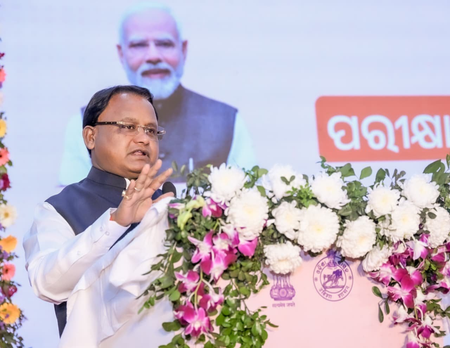
New Delhi, March 31 (IANS) On the occasion of Eid, some Muslims were seen wearing black armbands while offering prayers at mosques across cities like Delhi, Sambhal, and Bhopal. This act, seen as a form of protest against the Waqf (Amendment) Bill 2024, drew sharp criticism from Jagdambika Pal, Chairman of the Joint Parliamentary Committee (JPC). Pal questioned the political motivations behind the gesture, emphasising that Eid should be a time for spiritual reflection, not political demonstrations.
The All India Muslim Personal Law Board (AIMPLB) had earlier urged Muslims to wear black armbands during ‘Alvida Jumma’ prayers as a peaceful protest against the proposed Waqf Amendment Bill.
Speaking to IANS, Jagdambika Pal said, “It is Eid, and while people offered namaz, some also protested against the Bill by wearing black bands. I congratulate everyone on this auspicious occasion. Eid is about brotherhood, forgiveness, and resolving grievances. Why politicise this sacred day? The amendment Bill hasn’t even been presented in Parliament yet.”
He further criticised the attempts to create divisions on such an important religious day: “During Ramadan, a month dedicated to worshiping Allah, why was there an appeal to wear black bands nationwide? Today was a day for prayer, not for political protests. The government should present the Bill in Parliament first. If it benefits the poor and weaker Muslims, it should be welcomed. But what we’re seeing is nothing but politics.”
Pal also condemned the politicisation of Ramzan, stating, “The entire month of Ramzan turned into a political arena. Opposition leaders like Asaduddin Owaisi were making statements, appealing to political figures like Nitish Kumar and Chandrababu Naidu. Even Kiren Rijiju clarified that the amendment will not affect any mosque. Despite this, there’s an attempt to mislead people. Are they trying to create instability or sow discord? There are many Muslim organisations that have expressed support for the Waqf Amendment Bill.”
“We’ve presented our report. Now it’s the government’s responsibility to bring the Bill forward as scheduled with the Joint Committee,” Pal added.
Pal also reacted to West Bengal Chief Minister Mamata Banerjee’s recent remarks, urging people not to fall for provocations that could lead to communal riots. Banerjee had criticised the BJP, questioning whether they would change the Constitution if they had issues with minorities.
Pal responded sharply: “She refuses to acknowledge festivals of Sanatan Dharma and even tried to stop the BJP state president’s events, leading to police lathi charges. Her actions seem aimed at escalating tensions. The police in West Bengal are being politicised under the Trinamool’s influence, which risks inciting riots.”
Pal further reacted on Congress leader Sonia Gandhi’s strong criticism of the National Education Policy (NEP) 2020. Sonia Gandhi had accused the BJP-led government of using the NEP to centralise power, commercialise education, and communalise the curriculum.
Pal countered, “If they had studied the NEP properly, they’d realise it promotes learning in mother tongues, along with regional languages. The policy encourages multilingual education, with flexibility for students to choose languages like Hindi, Tamil, Kannada, or English. The emergence of new IITs, IIMs, and education hubs under this policy has given Indian students global recognition, including in Silicon Valley.”
Meanwhile, in an opinion piece published in The Hindu newspaper, Gandhi said, “The Union Government’s track record over the last decade has convincingly demonstrated that in education, it is concerned only with the successful implementation of three core agenda items — the centralisation of power with the Union Government; the commercialisation and outsourcing of investments in education to the private sector, and the communalisation of textbooks, curriculum, and institutions.”
–IANS
jk/rad




